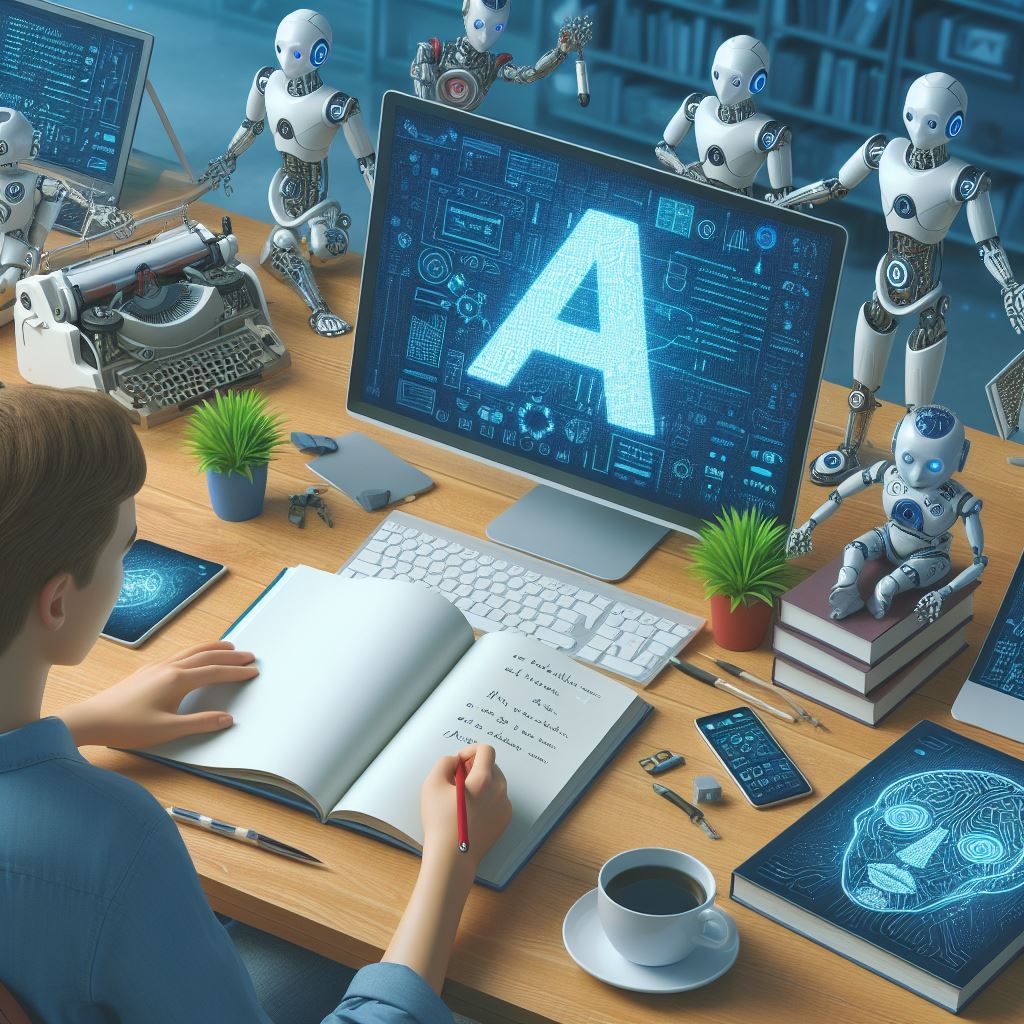
Navigating the Boundaries: Writing a Book with Artificial Intelligence – AI Assisted vs AI Generated
In the ever-evolving landscape of technology, the role of artificial intelligence (AI) in various industries, including literature, has become a topic of both fascination and concern. As aspiring authors explore innovative tools to enhance their writing process, a crucial distinction arises between AI-assisted and AI-generated content. This article delves into the nuances of writing a book with AI, exploring the advantages and disadvantages of both AI-assisted and AI-generated approaches.
AI Assisted Writing:
AI-assisted writing involves utilizing programs and tools to aid authors in different aspects of the writing process, such as editing, brainstorming, and idea generation. This form of AI collaboration can significantly improve efficiency and creativity, offering valuable support without replacing the human touch.
Advantages of AI Assisted Writing:
1. Enhanced Editing: AI-powered editing tools can identify grammatical errors, suggest improvements in sentence structure, and provide valuable insights to enhance overall writing quality.
2. Idea Generation: AI algorithms can assist in brainstorming sessions by offering creative prompts and suggesting plot twists, helping authors overcome writer’s block and fostering a more dynamic narrative.
3. Time Efficiency: AI-assisted writing tools can expedite the writing process, allowing authors to focus more on creative aspects rather than spending excessive time on mundane tasks.
4. Language Enhancement: AI programs can offer language enhancement suggestions, helping authors refine their writing style and cater to a broader audience.
Disadvantages of AI Assisted Writing:
1. Over-reliance: Authors may become overly dependent on AI tools, potentially stifling their own creativity and originality.
2. Technical Limitations: Some AI tools may lack the contextual understanding that a human editor possesses, leading to potential misinterpretations and incorrect suggestions.

AI Generated Writing:
In contrast, AI-generated writing involves delegating the entire writing process to artificial intelligence, raising ethical and quality concerns. While the allure of expediting book creation may be enticing, this approach poses risks to the integrity and authenticity of literary works.
Advantages of AI Generated Writing:
1. Speed and Quantity: AI-generated writing can produce content at an unprecedented speed, allowing for the creation of vast amounts of material in a short period.
2. Potential for Experimentation: AI-generated writing can be a tool for experimentation, pushing the boundaries of traditional storytelling and introducing new, unconventional narrative styles.
Disadvantages of AI Generated Writing:
1. Lack of Creativity and Originality: AI lacks the innate human ability to create truly original and emotionally resonant content, often resulting in sterile and formulaic writing.
2. Ethical Concerns: The use of AI to generate content raises ethical concerns, as it challenges the authenticity of literary works and may contribute to a devaluation of genuine human creativity.
3. Quality Control: AI-generated content may lack the nuanced understanding of language and context required for high-quality literature, leading to inconsistencies and incoherent narratives.
:
While AI-assisted writing offers valuable support in enhancing an author’s creative process, the leap towards fully AI-generated writing remains a contentious issue. The distinction between the two lies in the preservation of human creativity, authenticity, and the overall quality of literary works. Aspiring authors must strike a balance between leveraging AI tools for efficiency and maintaining the essence of their unique voice. Ultimately, the integration of AI in writing should be approached with caution, recognizing the importance of human creativity in preserving the integrity of literature.



